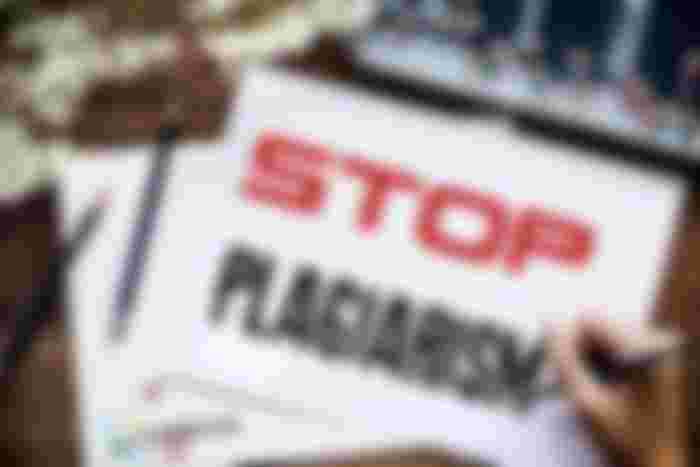How would you like to memorize a non-dictionary password like these:
nmiaieoi
emiapotc
They seem difficult to memorize right? or how about
nmiAiEoi
emiApotC
You would think that these passwords are already difficult to crack, right? Would you believe that with the right tools, a hacker could crack either of the first two passwords in 5 seconds? and the second variations in 22 minutes? Adding a couple of numbers will take them a little longer... like 7 months longer. And combining the two..
nm!AEoiEmiApotC
would take a Billion Years to crack. That is secure enough for me.
Go Ahead, check them through this site:
https://howsecureismypassword.net
And try the passwords you are using and find out how long will it take for a cybercriminal to crack it.
Satisified?
Or do you want to use a nearly impossible-to-crack password like the one above? But wait... how do I memorize that one?

Hello, dear readers. It's still the 21st of September and this is my second article for the day. Yup, I'm trying to catch up with my lost time last week.
Last week, I saw a post in noise.cash that his BCH wallet address was changed. In other words, his account was hacked. In the days that followed, it was difficult to log in to noise. Later I learned that someone attempted to hack the platform.
This got me thinking, how secure are the passwords of the users? As someone who used to work as a network administrator, a system's security is only as strong as the weakest password. The "weakest link", you might say. One problem of using a difficult
In this post, I will share with you a technique for creating a strong and secure password that you will not forget.
Looking Back.
I started using this technique while I was working as the head of the IT department in a real-estate development company. We had over two hundred users in the company, and we have a few servers and a number of manageable switches, and a Fortigate layer-3 switch/firewall. (Don't mind the technical terms for now. They don't matter.) Of course, we can't just use one password on all devices. And there are two of us maintaining the network servers and other equipment.
I had to devise a password pattern which both of us can recall yet is difficult to crack. Plus, I have a separate password as a super-admin. What I did is, I chose a poem, printed it, and posted it in our network server room, and told him of the pattern for our passwords.
What's a poem got to do with passwords?
Like in the examples that I gave above, the poem will help us recall our passwords. Here is the poem that I used for this example.
No man is an island,
Entire of itself,
Every man is a piece of the continent,
A part of the main.
If a clod be washed away by the sea,
Europe is the less.
As well as if a promontory were.
As well as if a manor of thy friend's
Or of thine own were:
Any man's death diminishes me,
Because I am involved in mankind,
And therefore never send to know for whom the bell tolls;
It tolls for thee.
by: John Donne
Source: https://discoverpoetry.com/poems/john-donne/no-man-is-an-island/
Let's take a look at the first three lines.
No man is an island,
Entire of itself,
Every man is a piece of the continent,
If you take out the first letter of each word of the first two lines, you get
n m i a i e o i - which is our first password. And the third line will give:
e m i a p o t c
Though is no longer a dictionary password (https://specopssoft.com/blog/what-is-password-dictionary-attack/) it is still easy to crack. Capitalizing the first five letters of the alphabet would make it a little bit longer to crack, (second variation). Adding some numbers would improve it a bit more. Combining the two, which makes it twice as long makes it almost impossible to crack.
What makes a Password Difficult to Crack?
Note: The following is based on the years of experience and knowledge that I have learned from different sources.
1. Non-Dictionary password. Dictionary passwords are easiest to crack. So the first step is to create a non-dictionary password like in the examples above. Don't use pure numbers also, especially birthdays.
2. Long password. The longer your password, the more difficult it is to crack. Even a non-dictionary password is crackable if it is not long enough. Like in the example, the individual 8-9 character passwords can e cracked in days or minutes. Combining the two passwords which makes it 17 characters long will take a billion years to crack. If you can live that long.
3. Add numbers. you may count the number of letters in your password and insert the number anywhere in your password. At the beginning, end, or middle. Or you may use substitute an instance of a letter with a number. Like the first instance of E, you replace it with 3.
4. Use non-alphanumeric and special characters. you may use special characters as substitutes or add them at the beginning or end of your password. In the example above, I replaced the first instance of "i" with "!".
How to Make a Password Difficult To Crack But Easy to Remember
The problem with long passwords and using non-English words not only makes it difficult to crack but extremely difficult to remember as well. And we don't want to forget our passwords. Here is one technique that will help you create a password that you can easily remember.

1. Choose a poem, a book, a prayer, a newspaper clipping. Whichever you can pin, memorize, or post on a wall. Anything that you can see every day, or memorize. For the purpose of this discussion, I will focus on a poem.
Print the poem, or save a copy on your device.
2. Select a line or lines from the poem and take the first letter of each word. If you like, you can include any punctuation marks. This is the main component of your password. If you want to make it longer, you can use the first two letters of each word. Or the first and the last. If you can make it at least 10 characters the better.
3. Decide which letters are capitalized. Like, the first five letters of the alphabet, first ten, last ten, first half, whatever you like.
4. You may substitute the first instance of a letter with a special character. Some sites would require you to do that.
If you need or want to change your password, select another line or set of lines from the poem and create another password using the same technique. This way, all you need is to recall or look at the poem to recall your password.
What if I want to use different passwords for different sites?
Using different passwords for different sites is a good practice. But remembering different passwords for different sites is quite difficult and could be confusing.
If you are a bit techie and comfortable with a password manager, use one. But if you want to go a bit low-tech, save your poem in a file. And in a separate file, the list of sites and mark it with numbers. Example:
gmail - 1
noisecash - 2
readcash -3
This means:
1- first line or first set of password
2 - second line second set of password
3- third line or third set of password
OR,
1 - means the first letter of each word,
2. second letter of each word, etc...
Following this technique would make your password extremely difficult to crack yet easy to remember. Currently, my password would take 34,000 years to crack. Surely, I can live with that.

Additional Suggestions.
Create your own pattern based on the suggestions above. Use different combinations. Create your own technique which will help you remember your passwords but is difficult to crack.
Then run your passwords on the checker.If allowed, use Two Factor Authentication especially for your email accounts.
Note that creating a secure password is just one way to secure your accounts. But hackers may still find a way to steal passwords and other personal information from you. I will discuss these in the future.
For now, I hope this helps.
Before I close. If you want to change your noisecash and readcash passwords, log out and click forgot password. Then check your email and follow the instructions.
Thanks For Reading and Stay Safe
Check out my other posts in Read.Cash
Check out my other Articles in Publish0x.com
Join me in ForumCoin.Com *
Follow me in Noise.cash
Follow me on Twitter
The content of this article is all mine unless otherwise indicated.





The simplest solution is to use dynamical password like dynpass.online